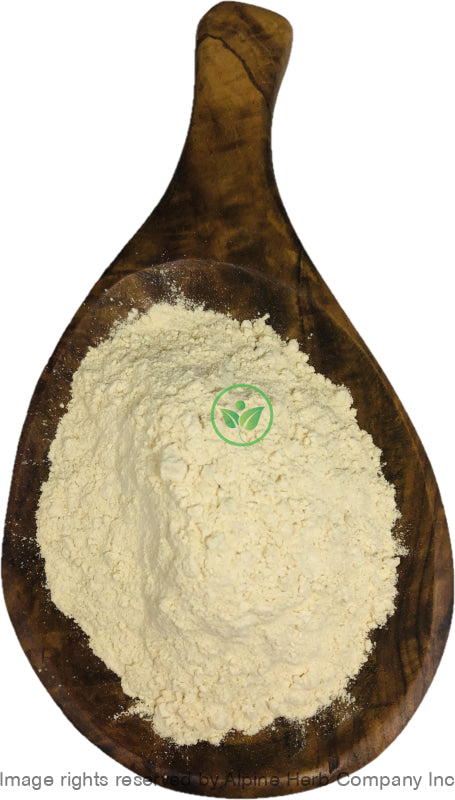Onion Powder Alpine Herb Company Inc.
$ 4,99 $ 2,99
Botanical Name: Allium cepa
Common Name:
- English: Onion
- Ayurvedic: Palaandu, Durgandh
- Unani: Piyaaz
- Also, known as: Basal, Basl, Bawang, Cebola, Cebolla, Cebolla Morada, Cepa Bulb, Cepolla, Cipolla, Common Onion, Madras Oignon, Oignon, Cu Hanh, Cong Tou, Hom Hua Yai, Hom Khaao, Red Globe Onion, Sibuyas, Spanish Onion, Hom Yai, Hu-T’sung, Piyaj, Piyaz, Pyaz, Pyaaz, Hu T’sung T’song, Hua Phak Bhu, Kesounni, Khtim, Küchenzwiebel, L’oignon, Loyon, Küchenzwiebel, Tamanegi, Palandu, Ralu Lunu, Tamanegi, Ui, Umbi Bawang Merah, Vengayan, Yellow Bermuda Onion, White Globe Onion, Zwiebel, Yang Cong, and Oignon
Habitat: Western Asia, now cultivated worldwide
Origin:
Harvested:
Parts Used: The bulb
General Information:
Allium cepa, a biennial herb, up to a meter tall, strong-smelling when crushed; bulbs vary in size and shape from cultivar to cultivar, often depressed-globose and up to 20 cm in diameter. The bulbs vary in size, shape, color, and pungency, though warmer climates generally produce onions with a milder, sweeter flavor than do other climates. A rounded bulb covered with a brown or purplish, papery skin. It has a strong characteristic pungency flavor results from the sulfur-rich volatile oil it contains and when onions are cut, the cell walls are damaged, releasing a sulfur compound that floats into the air which turns into sulfuric acid when it meets water. This explains why it stings if it gets into the eyes. This effect can be brought down by cutting fresh onions under cold running water, which will reduce the sulfur compound before it can drift upward into the air. Tubular, waxy leaves, which are dark green on the aerial part, up to 40 cm in height and 20 mm in diameter. They are nearly semicircular in section and slightly flattened on the upper side, thin, wrap over and protective on the outside, meaty on the inside and they accumulate reserve substances to form the bulb. The hermaphrodite flowers are white, the fruit a capsule.
Most commercially cultivated onions are grown from the plant’s small black seeds, which are sown directly in the field, but onions may also be grown from small bulbs or from transplants. The bulbs are eaten raw as an ingredient of salads, soups, sauces, stews, and curries or may be processed for use in pickles and chutneys. Adding chopped onions as an ingredient to a sour fruit sauce turns it into a chutney. Onions may be white, yellow, or red. They have a strong flavor and are used chiefly for soups, stews, and other prepared dishes and for frying.
Precautions:
You should consult with a qualified healthcare practitioner before using any herbal products, particularly if you are pregnant, nursing, or on any medications.
All information on this website is for educational purposes ONLY.
This information has not been evaluated by Health Canada.
This information is not intended to diagnose, treat, cure, or prevent any disease.
| Unit Size | 100g, 200g, 400g, 1kg |
|---|
Prompt shipping and expert packing
Thanks to our longstanding association with UPS FedEx DHL as well as other leading global carriers, we can offer a variety shipping options. Our warehouse staff is highly trained and will be able to pack your goods in accordance with our precise and exact specifications. Your items will go through an exhaustive examination before they will be securely packaged before being delivered. We ship to hundreds of thousands of customers daily in different countries. This is a sign of our determination to become the largest online retailer worldwide. Warehouses and distribution centers are located throughout Europe as well as in the USA.
Note that orders containing multiple items are processed according to the particular item.
We will thoroughly inspect all items ordered before shipping. Most orders are shipped within 48 hours. The delivery time will be between 3 and 7 working days.
Returns
The stock market is always changing. It's not entirely managed by us since we're involved with several entities, including the factory and the storage. Therefore, the actual inventory could fluctuate at any moment. Please be aware that it is possible that your order could be out of stock after you've placed your order.
Our policy lasts for 30 days. If it's been more than 30 days since the date you purchased your item We're sorry to say that we can't offer you a full exchange or refund.
You can only return a product if it is unused and still in the same state as when you received it. The item should be in the original packaging.
Related products
Spices Powder
Spices Powder
Spices Powder
Spices Powder
Spices Powder
Spices Powder
Spices Powder
Spices Powder
Spices Powder
Spices Powder
Spices Powder
Spices Powder
Spices Powder
Spices Powder
Spices Powder
Herb Powder
Spices Powder
Spices Powder
Spices Powder
Spices Powder
Spices Powder
Spices Powder
Spices Powder
Spices Powder
Herb Powder
Spices Powder
Spices Powder
Spices Powder
Spices Powder


































